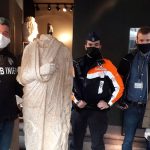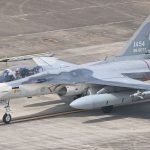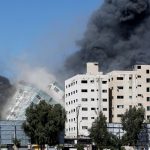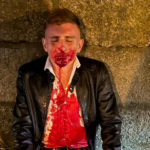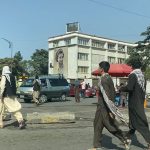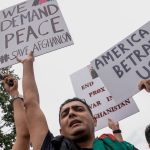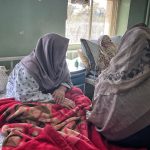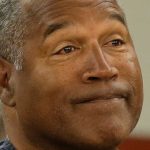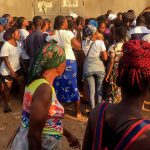The streets of Nur-Sultan are quiet, no obvious sign in the Kazakh capital of the massive political upheaval this country has undergone with the dawning of 2022.
Or of the seismic shifts happening in terms of who runs the country inside its windswept, modern ministries’ complex.
It’s -14C, the windchill makes it feel a lot colder.
Nursultan Nazarbaev, the strongman leader who ruled here since the Soviet collapse through to 2019, moved the capital from the balmier climes of Almaty to what was then called Akmola in 1997, essentially to make a clean break from the politics of the past and to spur ethnic Kazakh involvement in the north.
Bear in mind this is gulag country, the Karlag gulag around what is now the Kazakh capital was as large as France.
Re-populating Kazakhstan’s frozen north with ethnic Kazakhs after the end of the Soviet Union made sense but it is also typical autocratic behaviour, to transfer capitals in a bid to cement your rule even if the climate in the new place is almost unbearably harsh.
Furious political change
Kazakhstan anti-government protests: 164 people killed and 5,900 detained in the past week, health ministry says
Kazakhstan protests: Former intelligence boss Karim Massimov held amid ongoing unrest
Kazakhstan’s fate will play into a much wider high-stakes power struggle
The current president, Kassym-Jomart Tokayev, renamed the capital Nur-Sultan in Nazarbaev’s honour. Let’s see how long that lasts.
Behind the scenes there is furious political change on the go – against a backdrop of palace intrigue.
President Tokayev has sacked two more high ranking intelligence personnel – after he charged his former intelligence chief with high treason.
Nazarbaev has been removed from his post as chief of the powerful Security Council.
His spokesman says he is still in Nur-Sultan and that he was the one who suggested he leave his role but he hasn’t addressed the nation and as its nominal leader – he still has the title ‘leader of the nation’ – that raises questions.
Kazakhstan’s elites are a powerful lot and there are rumours these protesters were hijacked by forces looking to take the reins from Tokayev – and that the Russian peacekeeping deployment was his way of keeping them at bay.
‘Tokayev has the chance to resolve this’
“I think the president should depend on the people, not on external influences,” says Zauresh Battalova, a well-known opposition activist and former senator.
She thinks public opinion is split on the CSTO deployment but that if it remains limited, it should not be too politically damaging.
“Tokayev has the chance to resolve this through dialogue. If he doesn’t, he’ll just replace one autocracy with another,” she says.
Tokayev’s spokesman says the peacekeepers will only stay a week and it does appear that order is being restored.
The internet has returned to Almaty, the centre of these protests, for the first time in a week. Cars are back on the roads and there are long queues outside banks and at petrol stations.
The latest figures are of just under 8,000 arrests, a very heavy crackdown on what Tokayev characterises as terrorists who tried to sabotage Almaty.
The number of people killed keeps climbing too and the shoot-to-kill order remains in place.
President Tokayev is a technocrat, a long-time diplomat, fluent in English, Mandarin and French.
He has made all sorts of noises before about inclusive government and of giving a voice to the people.
Now he seems to be gathering power for himself away from Nazarbaev’s shadow, the question is whether he’ll use it to address deep socio-economic grievances – or whether he’ll do what a lot of leaders in this part of the world tend to do, and focus more on accumulating it for himself.


